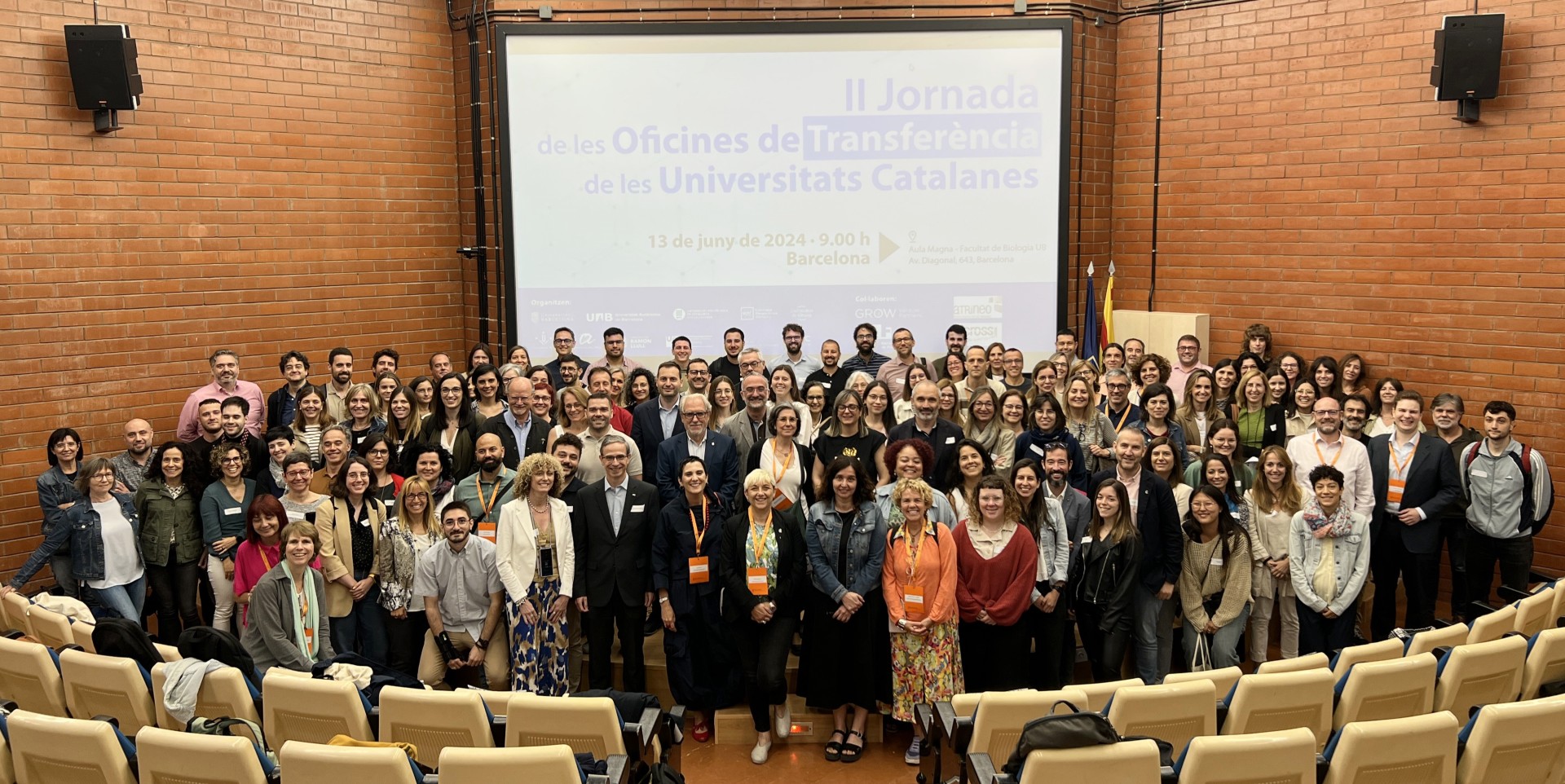
Catalan universities meet to discuss the challenges and opportunities of artificial intelligence
On 13 June, the 2nd Conference of the Transfer Offices of Catalan Universities took place at the Faculty of Biology of the University of Barcelona. The initiative, which brought together more than 140 professionals from the sector, aimed to promote innovation, knowledge transfer and collaboration between academia and the business world. The meeting served to reflect on the challenges and opportunities of artificial intelligence, on the new European legislation on artificial intelligence and on specific lines of funding for spin-offs, among other issues.
The day began with a speech by Laia Arnal, Director General of Knowledge Transfer and Society of the Department of Research and Universities of the Generalitat de Catalunya, who highlighted the role of Catalan universities as ‘the breeding ground for transfer professionals’, and stressed the need to ‘retain this talent and value their work’.
Mercè Segarra, vice-rector of Entrepreneurship, Innovation and Transfer of the University of Barcelona (UB), congratulated the Bosch i Gimpera Foundation for its 40 years as a knowledge and technology transfer office of the UB. ‘For four decades at the University of Barcelona we have been talking about transfer, about energising the ecosystem, and about the fact that we want to have an impact on society with our research’.
Then the deputy director of Switzerland Innovation West EPFL, Giovanni Porcellana, shared the initiatives of the École Polytechnique Fédérale de Lausanne and other institutions of the ecosystem in Western Switzerland, such as the University of Geneva (UNIGE), to attract private investments, develop collaborative research projects with industry and transfer technologies to the productive sector.
The potential of artificial intelligence
Artificial intelligence (AI) took centre stage at the conference. Malcolm Bain, partner at Across Legal SLP, explained the new European legislation on AI and its potential impact on research and transfer, as well as the challenges and opportunities arising from it and the EU guidelines on the responsible use of generative AI in research.
In addition, Vikesh Chugani, Innovation Manager of Atrineo Iberia SL, gave a lecture on the potential of AI to transform the way in which university research results are identified, evaluated and commercialised.
Chugani explained how AI can be used to streamline work processes, identify new business opportunities and new partners for university technologies and support the decision-making process.
Funding for spin-offs
The conference also served to learn more about the steps to follow to finance spin-offs, innovative companies born from university research projects. In this regard, Paco Badia, Managing Partner of Grow Venture Partners, and Emili Gómez, investment director of ICF Venture Capital, gave a lecture on the existing lines of funding for start-ups arising from universities and research centres.
The universities that participated in this conference were the following: Universitat de Barcelona (UB), Universitat Autònoma de Barcelona (UAB), Universitat Politècnica de Catalunya -BarcelonaTech (UPC), Universitat Pompeu Fabra (UPF), Universitat de Girona (UdG), Universitat de Lleida (UdL), Universitat Rovira i Virgili (URV), Universitat Ramon Llull (URL), Universitat Oberta de Catalunya (UOC), Universitat de Vic – Universitat Central de Catalunya (UVic-UCC), Universitat Abat Oliba CEU (UAO CEU) and Universitat Internacional de Catalunya (UIC Barcelona).
Across Legal, Atrineo, the Catalan Institute of Finance and Grow Venture Partners also collaborated in the event.

